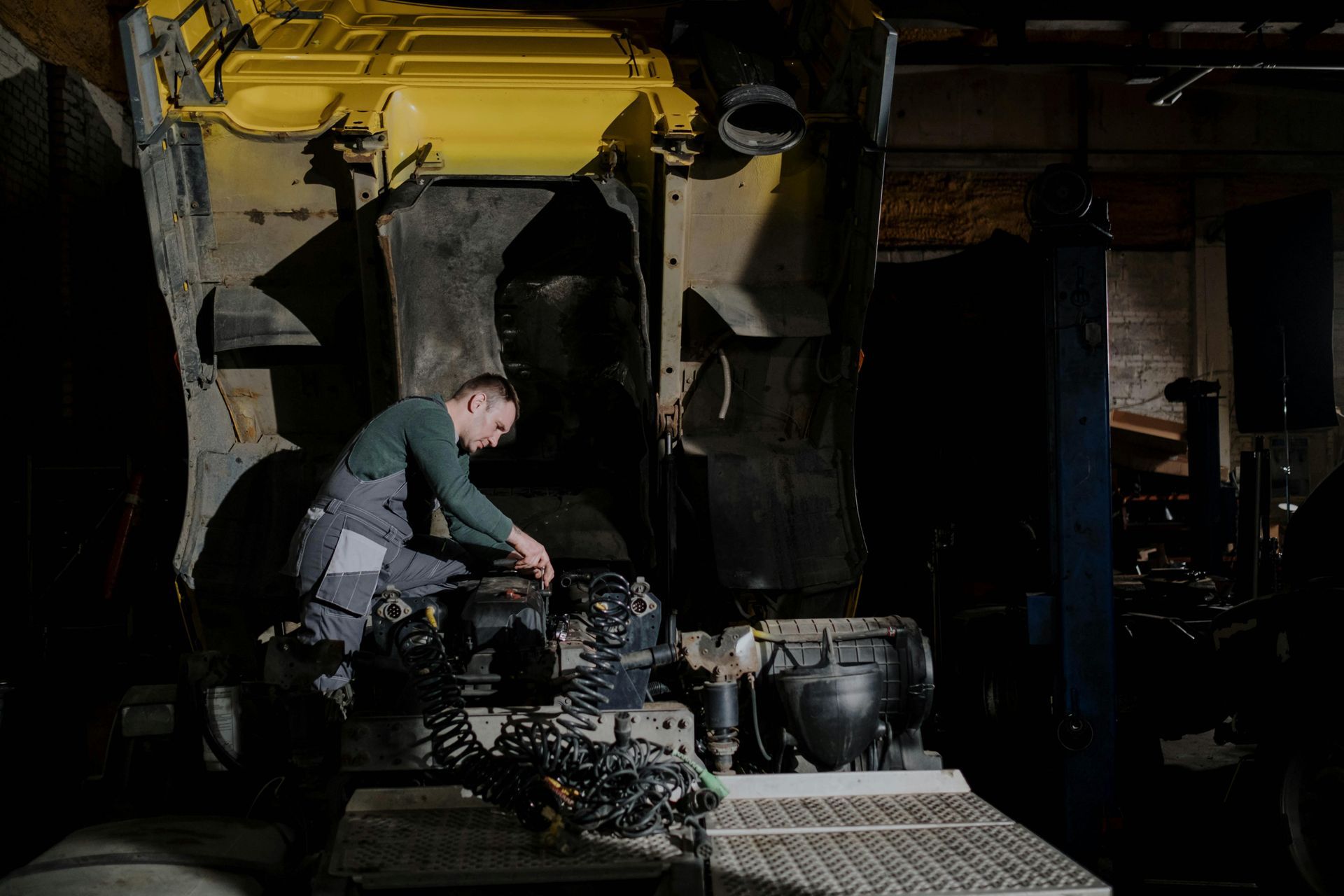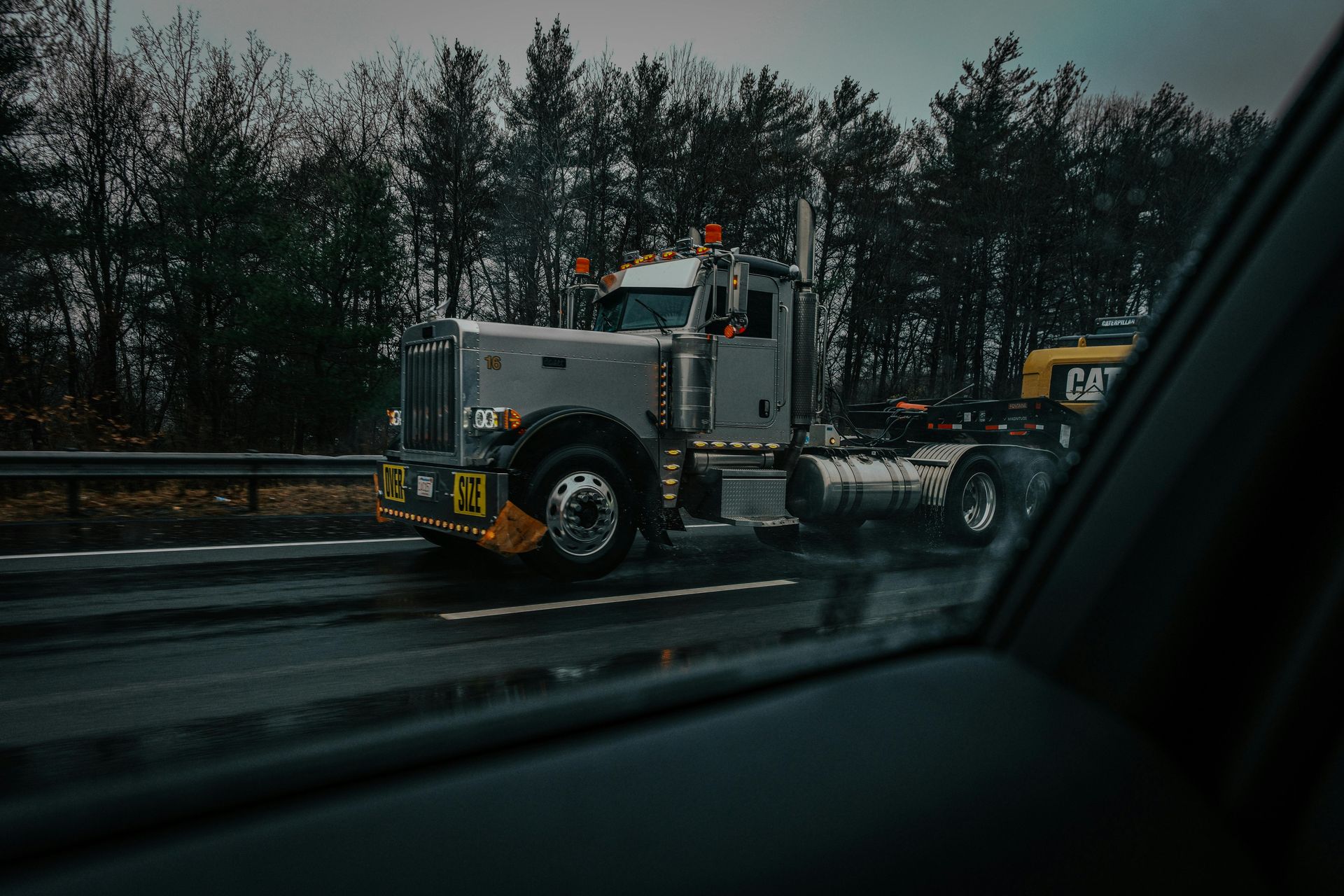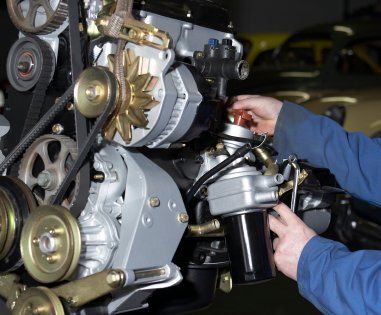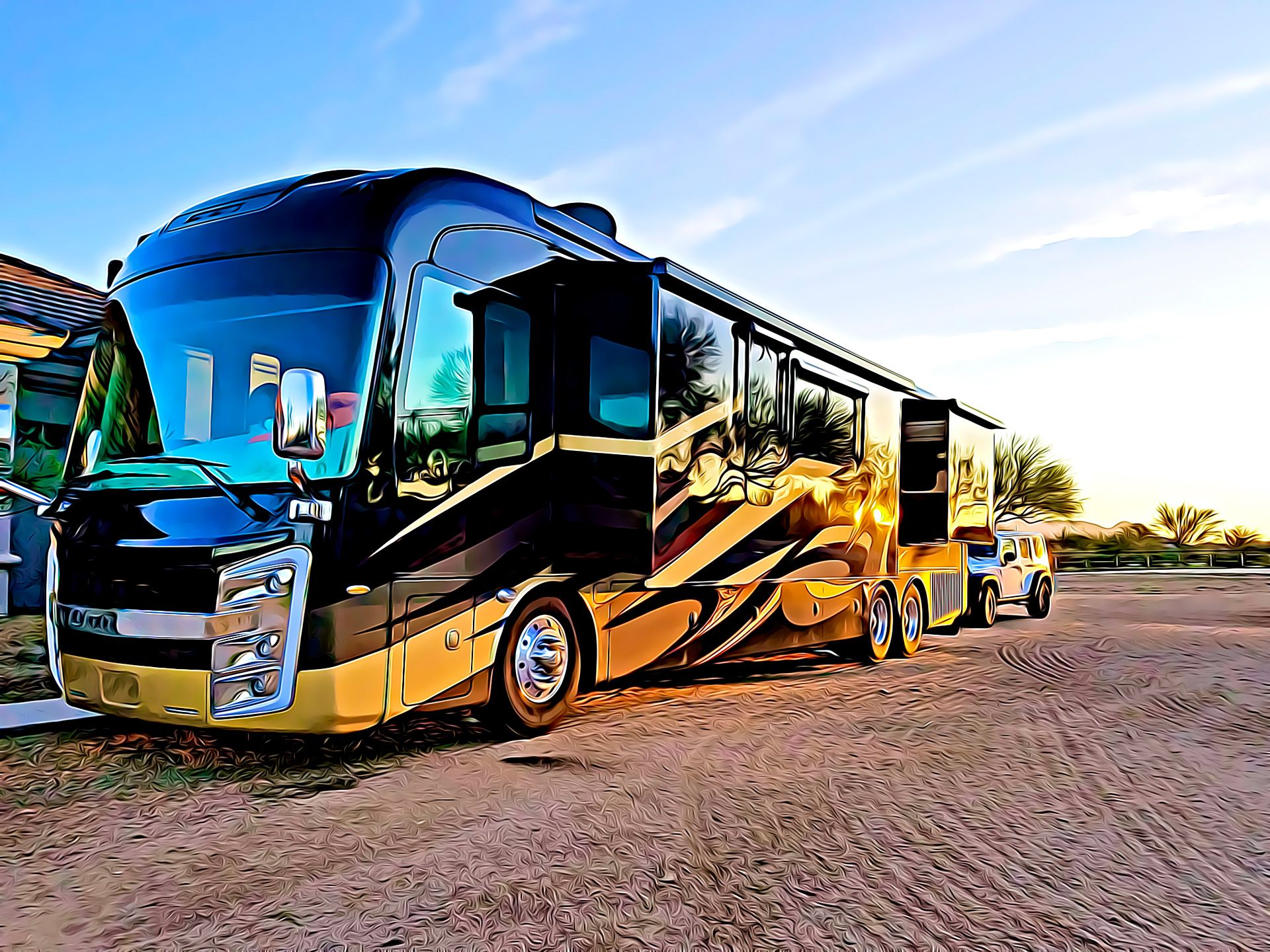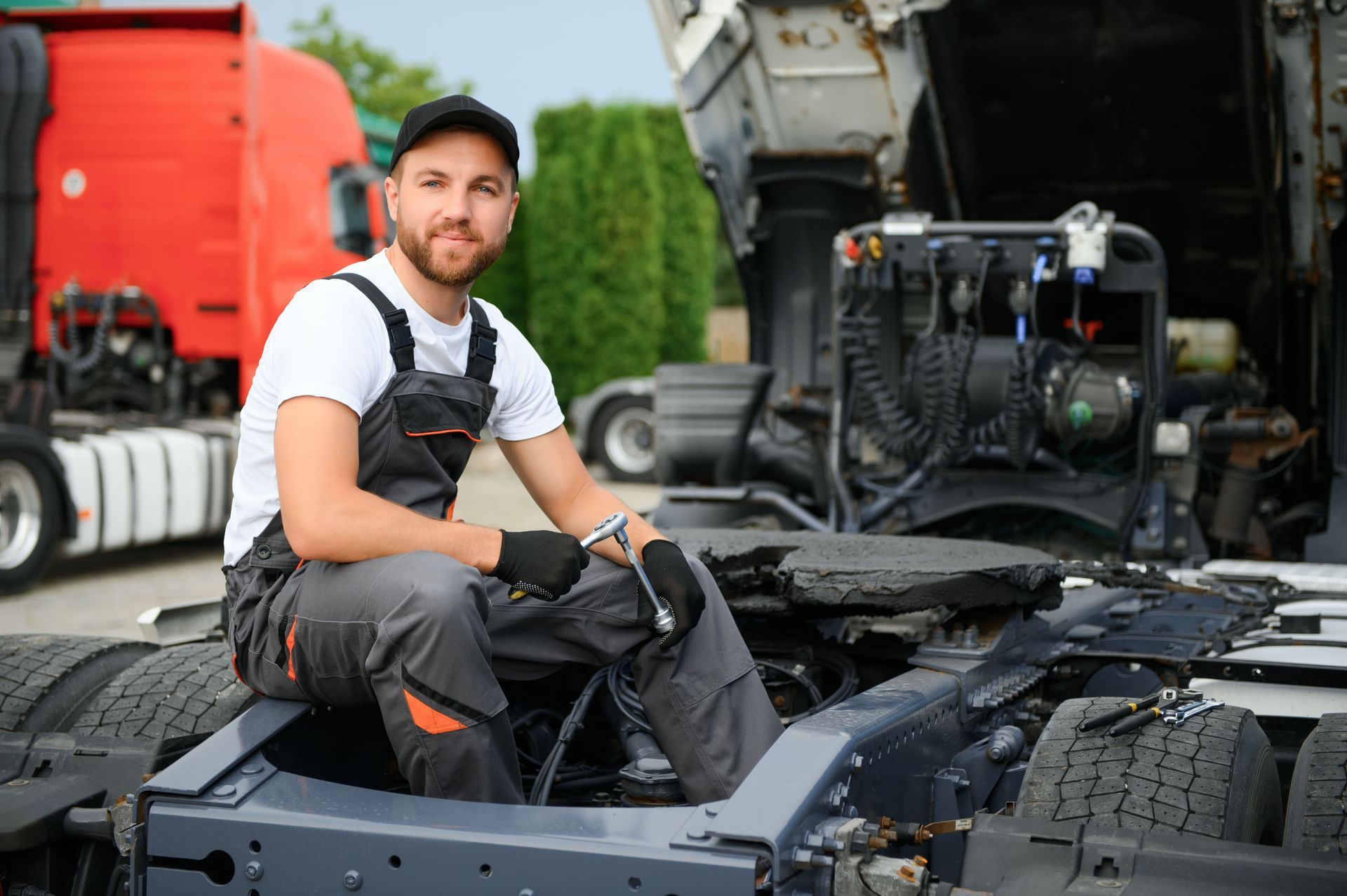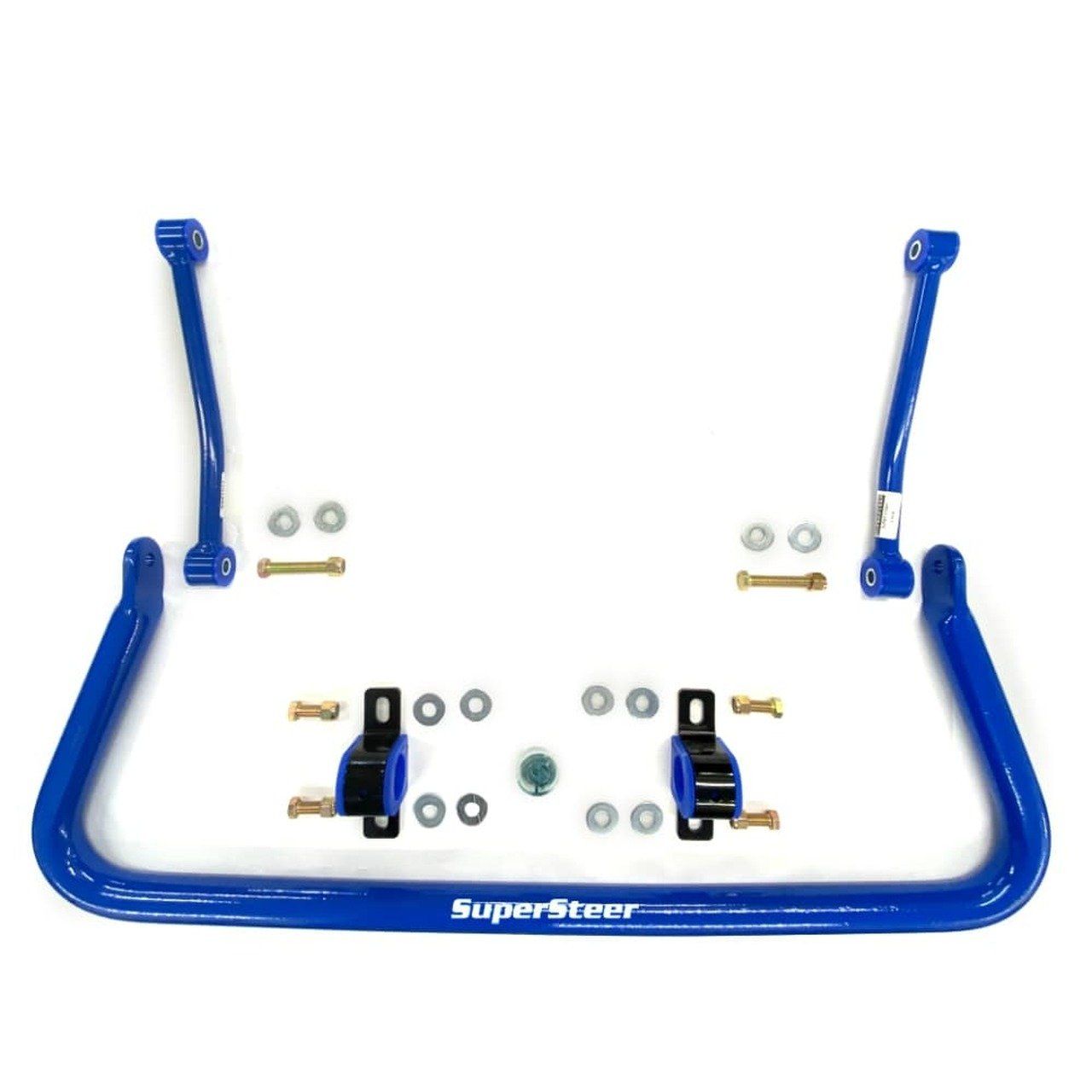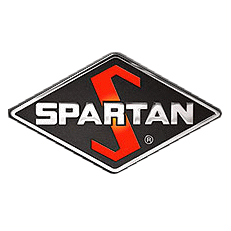What Should You Do If Your RV Breaks Down on The Road?
A great RV can last for many miles and offer you years of on-road and camping fun, but there's also a lot that can go wrong. RVs are far more complicated than standard cars and trucks, with numerous extra systems that can develop issues while you're on a trip. Beyond usual issues with engines, brakes, and suspension, you can also have problems with the electrical system, the refrigeration, and even the sewage system.
Do you have plans in place to prevent a breakdown from being a disaster? Do you have a clear idea of what to do if you're stuck by the side of the road and need RV repair? In this guide, we'll talk about how to prepare yourself and minimize the inconvenience of an RV breakdown.
And remember - if you're ever in Ohio, you can always bring your RV to Mainline RV & Truck Service for the best in service, repairs, and upgrades!
I. Be Prepared Before You Set Out
The last thing you want is to end up stuck with a broken down RV without having made plans ahead of time. Being prepared will do a lot to reduce problems, speed up your RV repairs, and even help keep you safe.
1 - Have warning/safety items onboard
You should never go on a long trip without bringing along some warning triangles, orange cones, or marker flares. Be sure you have some in your RV, stored someplace that's easy to reach when you need them. Remember, at night you will be hard to see - you need those warning markers to protect yourself from traffic.
However, be aware of your environment. If you smell gasoline or natural gas/propane, do not use a marker flare. There's too much chance of it igniting something, even if it's several feet away from the RV.
2 - Have a full tool kit
Also, you should have a good tool kit stowed away, in case the problem is something that's easy to fix. We particularly recommend bringing:
- Flashlight
- Screwdriver Set
- One or more adjustable wrenches
- Tire pressure gauge
- Socket and ratchet set
- Allen wrenches
- Extra fuses for onboard electronics
- Jack
- Tape measure
- Duct tape
- Zip ties
You'd also do well to invest in a small air compressor, so you can refill your tires on the road if needed. Plus, keep an eye on your spare tire and make sure it's in good shape before setting off on each adventure.
If you're driving in the winter, we also recommend having some cold-weather survival gear such as heat packs, heavy clothes, and sleeping bags. Your RV will provide some shelter, but if the electronics fail, you still need to keep yourself warm.
3 - Know your warranties
It's a good idea to keep your RV's service warranty in the same place you keep your manual and registration. Many companies offer roadside support services as part of their warranty, although it's not universal. Being familiar with your warranty can potentially save you some money if you don't have to call in a third-party tow for RV repair service.
4 - Subscribe to a roadside service, if needed
If your warranty doesn't offer any roadside support, it's a very good idea to sign up with a group like Triple-A as a backup plan. Prices are typically pretty low for year-round coverage, and if you ever get stuck, that extra 'insurance' will be well worth the money. The further from home you're going, the more important it is to have a backup plan in case of accident or mechanical problems.
Of course, whether you have warranty support or you're using a different roadside service, be sure to keep the appropriate phone numbers somewhere safe and easily accessible. Keeping them in your wallet next to your driver's license is a good idea if you spend a lot of time in your RV.
5 - Know your limitations
Thanks to nearly ubiquitous Wi-Fi and the Internet, it's possible to look up repair instructions for virtually every type of mechanical failure you might have. But know what you can and can't fix yourself. If you attempt a DIY repair that's beyond your skill level, you could end up wasting hours, and only end up with more problems than you started with.
II. What to Do If There's an Emergency
So, what should you do if you suffer mechanical failures on the road?
1 - Assess if you can keep driving
There are many problems with an RV that won't immediately stop you from being able to drive, such as electronic problems in the living area. Don't pull over unless you absolutely have to. If it's a minor issue, just look for the nearest RV repair shop and head for it ASAP.
But if it's a more critical issue such as engine failure, brake failure, or a tire blowout...
2 - Find a safe place to pull over
You want to be as far onto the shoulder, or even onto the grass, as possible - but avoid stopping on an incline, or on the backside of a hill. The further you are from the road, the safer you'll be. Don't assume other motorists will see you. Some people are amazingly unobservant, and you want to be well out of their way.
3 - Put on your hazard lights and put down your warning gear
Don't park on the side of the road for any length of time without making yourself as visible as possible. These should be spaced out a good ways - up to 100-200 feet from your vehicle, to give oncoming traffics as much warning as possible.
4 - Keep passengers in the vehicle (unless you smell gas)
If you're having mechanical problems, only the most competent or able-bodied adults should leave the vehicle. This is particularly important if you have kids onboard. Don't let them wander around, that's just asking for more trouble. Ideally, they should stay in their seats, belted, just in case there's a collision.
However, the exception is if you smell gasoline or gas/propane/etc. If there's a fire risk, get people well away from the RV - but keep them away from the road.
5 - Try to diagnose the problem
If possible, determine what's wrong with your RV, or at least have a general idea of the issue. Even if you can't fix it yourself, you'll speed up the repair process if you can tell the repair crew ahead of time what's wrong. They'll be able to bring the right tools and parts that way.
6 - Call for help
Fortunately, cell service is becoming so commonplace that it's getting downright hard to find areas without service. Unless you're deep in a forest or state park, you'll probably be able to get enough bars to make a call. This is the time to pull out those phone numbers for your warranty service and/or roadside assistance and call in some backup.
7 - How to find other help
What if you lack any roadside protection, or forgot the phone numbers? You've got a couple of options here.
First, whenever you stop at an RV park, ask them for recommendations for local RV repair shops. You never know when you might need a tow or repair, and their suggestions are probably going to be good ones. In many cases, RV parks give out fliers with exactly the sort of information you need, so try to collect them as you go.
Otherwise, you'll be turning to Google. You want a tow or repair service that:
- Has 4–5-star ratings
- Has good written reviews
- Has been in business for years, or decades
- Has certifications from the manufacturer to work on your vehicle
Remember to look specifically for RV repair shops. Standard car/truck repair services might try to fix your RV, but they need experience with RVs for you to be able to trust their work.
8 - Keep an eye on the road while you wait
While it’s tempting to hang out in your RV while you wait for your service vehicles to arrive, the safer option is to stay outside where you can watch traffic. This ensures you'll see the help arrive, and they'll see you, without overshooting. Also, you'll be more visible and help prevent any other motorists from causing problems or accidentally hitting the RV.
When You Need RV Repair in Ohio, Call Mainline!
Mainline RV & Truck Service offers roadside assistance and repair services, available 24/7. If you're in trouble, we're here to help. Our rates are reasonable, and our repair services are among the best in the state.
Stay safe and remember to call 440-439-7777 if you ever need help!


